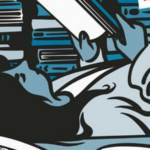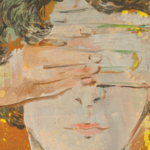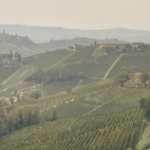One of my favorite historical periods is the pre-World War I/during the war/between-the-wars decades. Change is almost speed-of-light quick throughout that time period. The old, settled society is turned upside-down, and women have never-before-imagined rights. It’s the perfect backdrop for drama, especially of the crime-fiction variety!
My latest novel, Lady Takes the Case, takes place in 1912, the last summer of Edwardian-style England. The stately homes and social rituals are all still in place, as well as the traditional divisions of labor and hierarchies, but they are wobbling. Women like Lady Cecilia are feeling dissatisfied with the old expectations of females in their social class, and finding new ways of using their interests and talents. Men like Cecilia’s brother are also chafing at the old expectations, and looking for new ways of fulfilling their duties. Even as young people are feeling the tug of the new century, forces beyond their control are rumbling through Europe and will shake their world beyond all recognition very soon—and leave them scrambling in the ruins. But Cecilia has the fortitude to face the change, and with her new friend Jane’s help will find new ways of finding order in their world….
But I’m certainly not the only one drawn to this period! Here are some of my favorite stories from the early 20th century, including films, television shows, and books.

Testament of Youth, Vera Britton
I’m referring to either the 1979 BBC “Masterpiece” series, or the 2015 film with the always oh-so-sad Jon Snow, er, Kit Harrington. Testament of Youth is not really a crime story, but it is essential viewing/reading for a look at what it was really like in the 19teens. The show is based on Vera Brittain’s vivid, moving memoir of the same name, set during the time when she left Oxford and became a war nurse, as she saw her entire world destroyed by the war and then making it again.

Joyeux Noel (2005)
This 2005 film about the famous “Christmas truce” of 1914, when the two opposing armies laid down their arms for the holiday, is seen through the eyes of French, Scottish, and German soldiers, as well as two German opera stars sent to sing at the front. A sad and yet somehow uplifting glimpse of the real humanity behind the barbarism of the war.

A Very Long Engagement (2004)
I loved Audrey Tautou in Amelie (still one of my favorite films!), and have looked for her movies ever since. 2004’s AVLE is—not much like Amelie, but it is very compelling. Tautou’s Mathilde is told her fiance was killed in the war. She doesn’t believe it, and sets out with a PI to discover what happened. They uncover a scandal concerning the treatment of deserters, and—well, you just have to watch to find out.
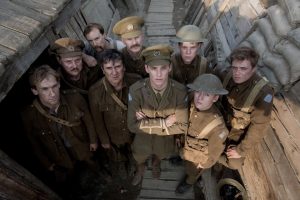
Birdsong (2012)
A beautiful 2012 “Masterpiece” production starring Eddie Redmayne, based on (and taking some very distinctive swerves from) an also-great novel. As seen in flashbacks, we glimpse a man’s ill-fated grand passion with a beautiful Frenchwoman, which ends suddenly and mysteriously, as well as his harrowing experiences in the trenches, and what happens to him after.

The 39 Steps (1935)
You have several choices of adaptations for this one, but I do like the classic 1935 film! An Alfred Hitchcock version of a 1915 novel, it’s a very suspenseful look at an “everyman” civilian in London, who gets caught up in a spy organization called The 39 Steps, who are trying to steal British military secrets. A terrific look at the way the world has changed after the war, and the secrets people who fought in it might keep.
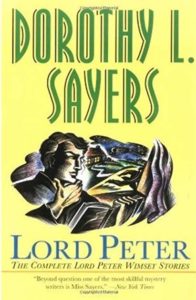
The Lord Peter Wimsey series, Dorothy Sayers
I do love the Ian Carmichael series from the “golden age” of “Masterpiece” in the 1970s! (as well as the Sayers books). In these complicated mysteries solved by a complicated character, Lord Peter is eccentric, lighthearted, a bit foppish—but only on the surface, for he suffers from after-effects of his war service, which also helps to make him compassionate and perceptive. Complex plots and fascinating glimpses into English “village life” round it out. (There’s also a great romance later on, with Lord Peter’s university-educated, mystery novel-author love Harriet Vane, a “New Woman” like Lady Cecilia might become!)
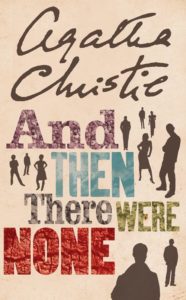
And Then There Were None, Agatha Christie
What list on this topic is complete without an Agatha Christie story??? But which to choose from all the (excellent) variety? Poirot is usually my favorite, and you certainly can’t go wrong with any David Suchet version of the Belgian detective. But I recently watched the latest version of And Then There Were None, and give it high marks for suspense and creepy atmosphere (as well as for Aidan Turner and his towel).

The Lady Vanishes (1938)
Another oldie (1938) but goodie. A young woman befriends an elderly lady on a train—only to have her new friend vanish, while the other passengers claim she never existed at all. It all turns on spies and codes, of course, with a little romance.
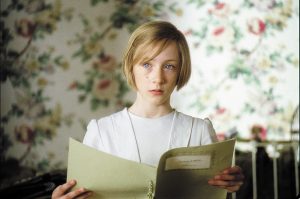
Atonement
Atonement moves a little forward in time to World War II, but still with the “hidden secrets of stately homes” as a backdrop. I loved the book, and found the 2007 movie a good adaptation. Atmospheric, sad, full of hidden lies and tragic romance.

Gosford Park
Sort of the ur-Downton, an Oscar-winning film by Julian Fellowes (also with Maggie Smith as a sarcastic dowager, so you know you can’t go wrong!). Murder strikes a house party at stately Gosford Park, and everyone (upstairs and down) is a suspect. A complex mystery, plus fabulous sets and costumes, plus a realistic look at the running of a large estate in the 1930s, equals a must-see.

Peaky Blinders
(note: I am usually strictly a cozy, costume-y, Downton-y sort of viewer, and Peaky Blinders is much more violent than what I usually enjoy. But so many people recommended it to me, so I gave it a go and was hooked. It’s totally bonkers, but in an addictive way!). A gritty and complicated look at a criminal gang in post-WWI Birmingham, it’s also a realistic portrayal of the darkest terrors men faced after their experiences of the War.










